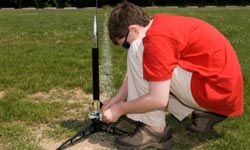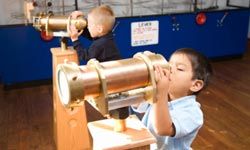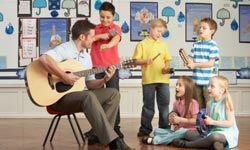Each morning, your kids go to school, and they're safely held within its confines for the next six to seven hours. But what about when that last bell rings? Many parents who work a traditional 9 to 5 day are unable to pick up their children or meet them at home until a couple of hours after the school day has ended. Not surprisingly, this can be a dangerous time for kids. It's when school-age children are most likely to have little to no supervision -- and when they are most likely to engage in unhealthy behaviors, whether using drugs and having sex or eating junk food and playing video games.
Enter after-school programs.
Advertisement
After-school programs aren't just glorified baby-sitters that help keep kids out of trouble; many offer well thought-out curriculums designed to improve the social, intellectual and physical skills of children and teens. So, if you're thinking of after-school programs as evening versions of "The Breakfast Club," think again as you explore these creative possibilities for your kids.





